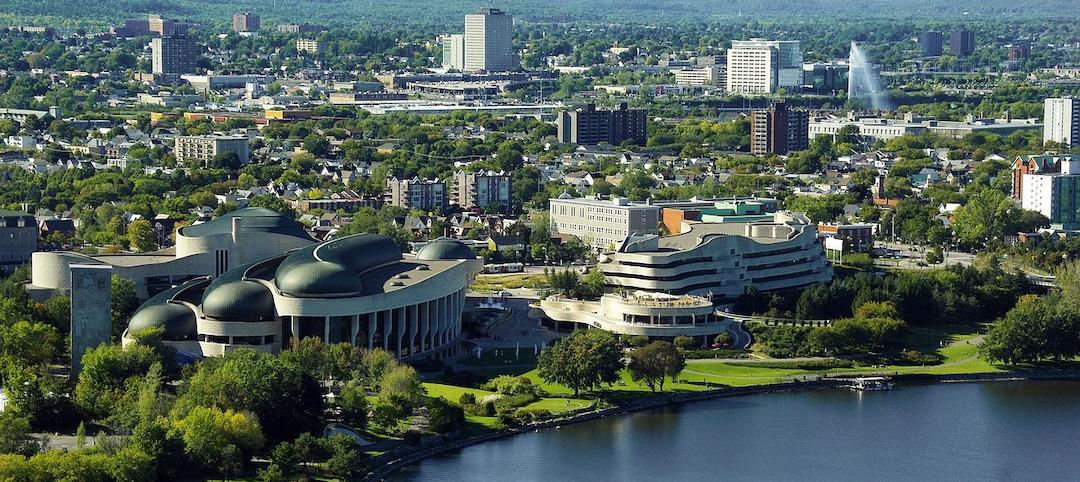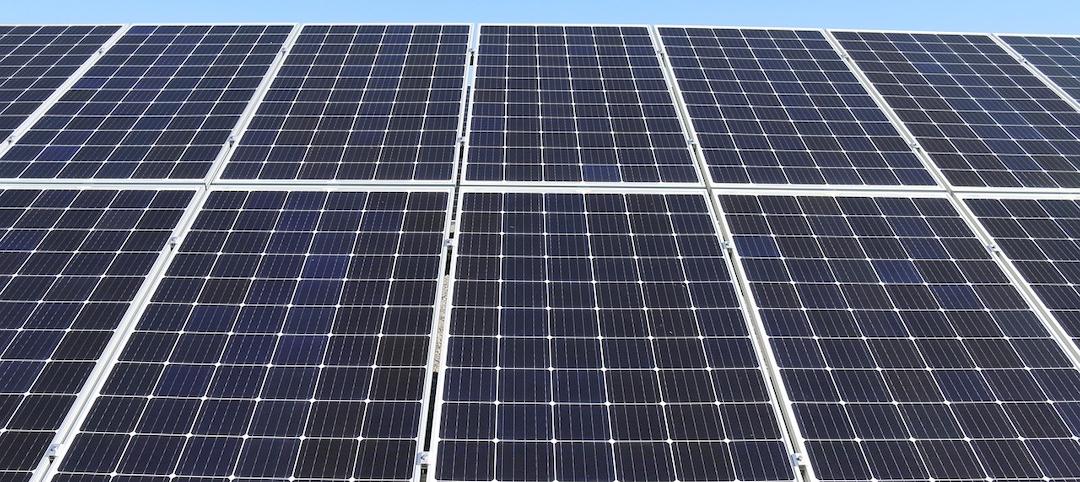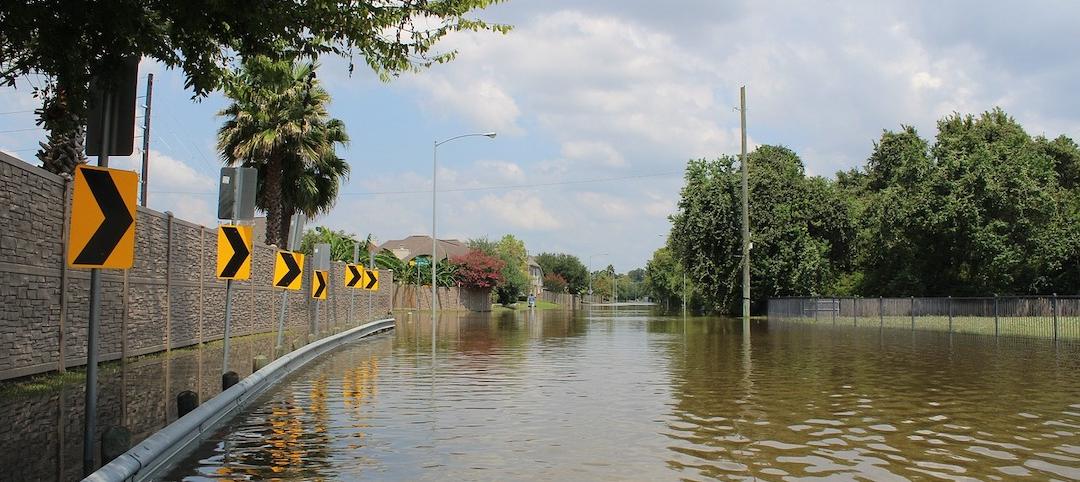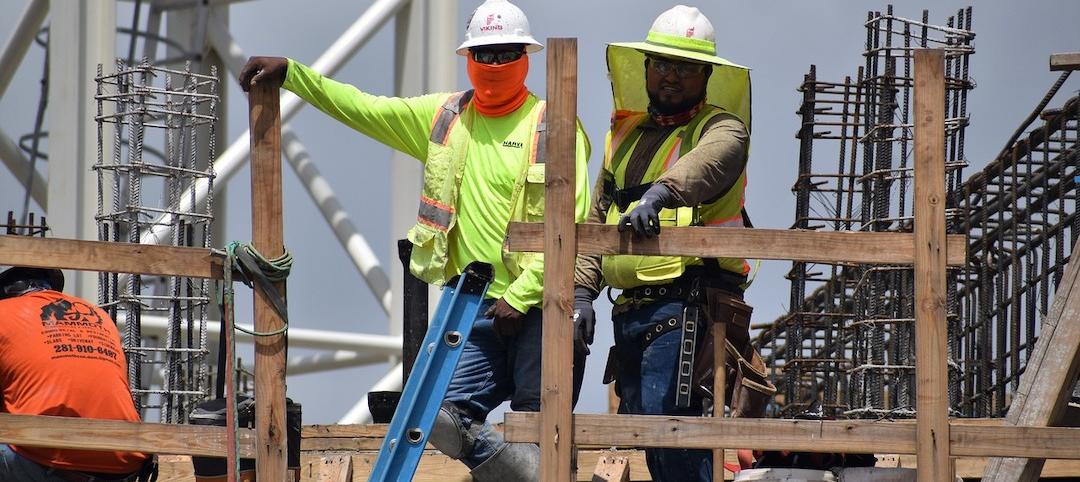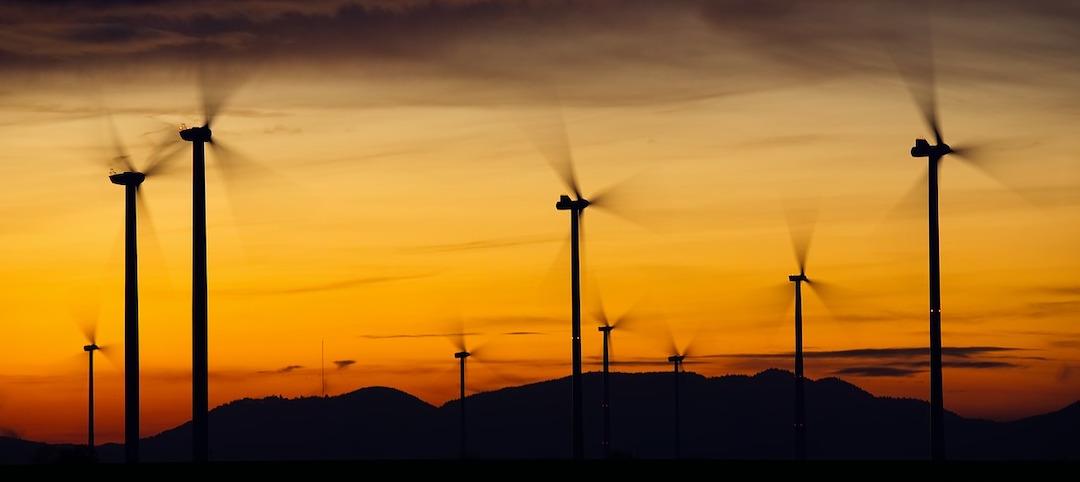Cornell Tech, under construction on Roosevelt Island in New York City, recently announced details of its plan to achieve Net Zero energy efficiency for The Bloomberg Center.
Designed by the architecture firm Morphosis, The Bloomberg Center is the first academic building to be constructed on the Cornell Tech campus. The first phase of this development will open this September.
The campus plans include photovoltaic arrays, geothermal ground source heat pumps, an energy-efficient facade balancing the ratio between transparency and opaqueness to maximize building insulation and decrease energy demand, and smart building features that will monitor lighting and plug load use. The strategy to achieve a low energy building is through a stepped approach, prioritizing reduction in energy demand through load reductions and maximizing passive and energy efficient design, as well as using renewable energy to power the building systems.
There are 80 closed-loop geothermal wells, each 400 feet deep, that were drilled below the main campus public open space. The ground-source heat pumps will be used with an active chilled-beam system.
An acre-sized photovoltaic array tops The Bloomberg Center and neighboring The Bridge building. The building designs incorporate the panels as an integral architectural feature. The array on The Bloomberg Center also provides building shading.
Related Stories
Codes and Standards | Jan 19, 2022
Canada’s Trudeau seeking building codes changes, net-zero emissions building strategy
Prime minister also wants net-zero electricity grid by 2035.
Codes and Standards | Jan 18, 2022
Greater emphasis on building materials needed to achieve net-zero carbon offices
Engineered wood, straw, and bamboo can be keys to achieving goal.
Codes and Standards | Jan 17, 2022
AISC seeks comments on draft earthquake standard for steel buildings
Includes new limits for cross-sectional slenderness of steel columns based on latest research.
Codes and Standards | Jan 12, 2022
California’s wildfire building code significantly reduces structural loss
As other states consider upgrading their codes, Golden State provides useful model.
Codes and Standards | Jan 12, 2022
Regulator holding back climate-friendly, energy-saving equipment deployment, critics say
Heat pumps, solar power could be made more accessible for low-income communities in Massachusetts.
Codes and Standards | Jan 11, 2022
Cost hikes drive nearly one million renters out of homeownership qualification in 2021
Household income needed to pay a mortgage rose to $62,872 from $55,186.
Codes and Standards | Jan 10, 2022
New ratings services focus on climate risk for homeowners
Efficacy of models used in risk assessment varies.
Codes and Standards | Jan 6, 2022
Virginia contractors having a tough time finding diverse subs to meet state goals
Survey of primes may indicate similar issues at federal level.
Codes and Standards | Jan 5, 2022
Boston drops parking requirements for affordable housing
Measure expected to spur new projects.
Codes and Standards | Jan 4, 2022
Dept. of Energy Better Climate Challenge aims for 50% GHG emission reduction by 2030
Program offers technical assistance and peer-to-peer knowledge sharing.



